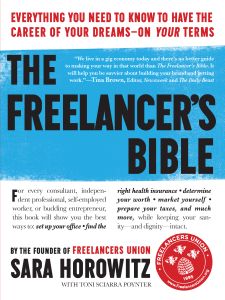Writing about sex.
Banging out listicles.
Line editing.
Connecting with other writers and editors.
Making lemon pound cake.
Singing in the shower.
Mimicking the sounds my cats make.
Things I Am Not Good At:
Covering my ass when I draw up and/or sign a contract.
I’ve been a full-time freelancer for about five and a half years now, yet with every new client I take on, I learn of yet another new clause I should have included in our contract.
For example, in drawing up a description of the project scope, I’ve learned to include hard-and-fast dates for when things are due — on both ends. I’ve learned to ask for a portion of my project fee up-front, and also to lay out a payment plan that gets me moolah at different stages of a project. I’ve learned to start including mention of a late fee in my contract… and to also reiterate this on my invoices (because invoices often go through an accounting department that may not be familiar with all the terms of the initial contract). I’ve learned to add in wording that wards off scope creep without an addendum to the original contract. I’ve learned to include a section that allows either myself or my client to terminate the contract if the other side doesn’t deliver (and, in one case, was relieved to be able to use it).
In fact, I thought I’d covered everything I possibly could until this past week, when a delinquent client tried to convince me that he shouldn’t have to pay me the full fee we’d agreed upon.
I’ll spare you all of the nasty / shady details but, basically, because of a single day in which I’d lost power during the whole Hurricane Sandy fiasco, this client was insisting that I didn’t deserve my full fee.
When I ranted about the situation to my closest word nerd posse, I learned about force majeure, a contact clause one can include to say that both parties won’t be liable if an event beyond their control — such as an effing hurricane — makes it impossible for them to fulfill an obligation. “I just read about it in The Freelancer’s Bible,” said Susan, ever the voice of wisdom and reason.
I’d just received my own review copy of the book the week before, and this spurred me to finally dig in. I paid particular attention to the section on contracts, which laid out every damn thing one should include in one (I’m tempted to rip these pages out and hang them above my desk), and then gave tips on how to resolve disputes. As I pored over these pages, I swear I heard a chorus of angels harmonizing from up above.
It blows my mind that — no matter how many freelance how-tos pop up in the marketplace, I always learn something
new. Things are no different with The Freelancer’s Bible, written by Freelancers Union founder Sara Horowitz. And though I appreciate the title — which hints at a comprehensiveness unseen in other books of its kind — I’d go so far as to say that Bible isn’t the best choice of wording. Rather, I see it as a toolbox. One with levels.
On the top level is all that beginner stuff: How to set freelance goals. How to set your rates. How to set up the ideal office environment. Beyond that is the next-level stuff: Getting clients. Closing the deal. Marketing yourself. Networking. (I especially loved a section on balancing your freelance portfolio — finding the right mix of client types in order to feel fulfilled and succeed as a business.) Finally, if you dig deeper into that toolbox, there’s all that other stuff that may not have occurred to you yet: Subcontracting. Taking on business partners… or perhaps even an entire team. Incorporating. Continuing education.
For now, I’m just highlighting THE ENTIRETY OF THE SECTION ON CONTRACTS. But I know I’ll be able to turn back to this book when the other nitty-gritty aspects of the freelance life elude me.
Speaking of contracts, have you tried the Freelancers Union Contract Creator? Such a fabulous resource! Especially when you’re setting up you’re very first homegrown contract template.
So over the course of your freelance career, which contract clauses have you regretted not including?
Related: My Invoicing Error, Resource Roundup: Sample Contracts



Thanks for the shout out! In an ideal world, you shouldn’t need that clause. I mean, what reasonable would screw you over after a hurricane? It just seems like common sense to cut the other person some slack.
On the flip side, it’s not pretty to be on the other end of that clause. Say you’re a bride whose wedding has to be rescheduled due to a hurricane. You still owe the photographer money (after all, it’s not the photographer’s fault) AND you don’t get pretty photos to show for it (a reasonable person might let you put that deposit towards another date but an in-demand photographer could be booked solid for months). Bottom line: hurricanes suck. 🙁
Agreed, hurricanes suck. That’s the real lesson in all of this. 🙂
I just ordered myself a copy of The Freelancer’s Bible because – don’t hate – I’ve never really had to write up a contract for myself. Most of what I do for the big media companies involves their standard contracts, and for book stuff, I sweated out finding an agent (to whom I will happily fork over 15 percent to have someone negotiate contracts for me!). If I ever had to do one myself, I’d be screwed. And I don’t want to be screwed.
Contracts: Our least favorite part of freelancing. Thanks for the reminder.
If I’m honest, I’d say a bit of my fear about contracts is that when I present one with all the “you’ll turn over your first born if…” clauses, the client will walk. But really, I’ve signed contracts to buy homes and obtain an SBA loan (super scary clauses!–don’t do it!). Our clients, if they’ve been in business for long at all, will not think twice about signing.
And, if I’m any indication at all, the more minute copy, the less likely they’ll actually read the details. 🙂